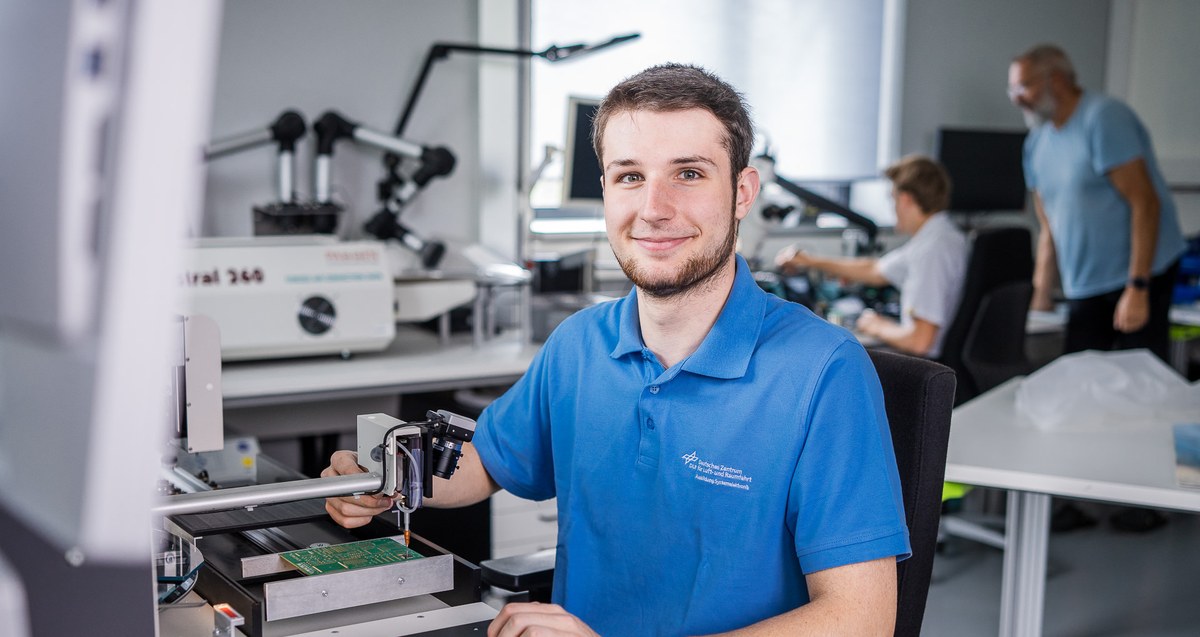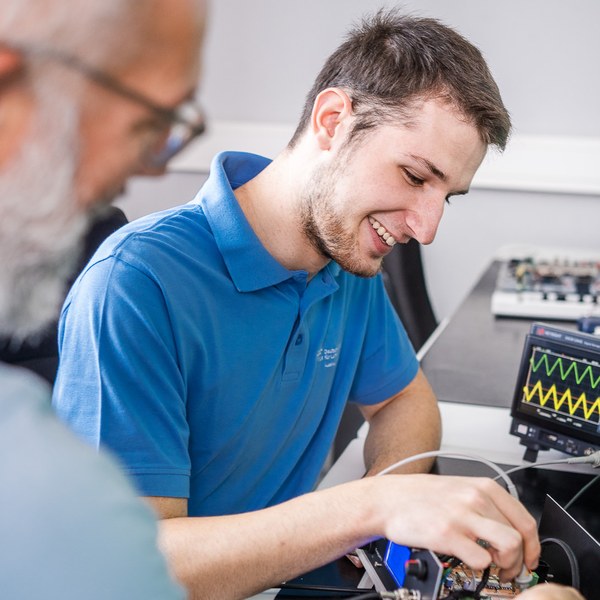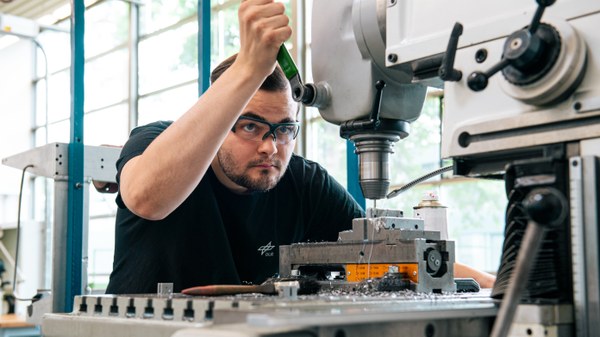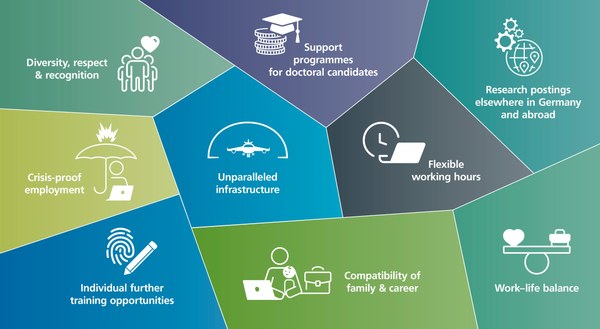Manuel Plan
Apprenticeship: Electronics for devices and systems
Manuel Plan joined DLR in Stuttgart as an apprentice in 2019. In this interview, he tells us about his first few months at DLR, the best moments of his training and what he has learnt.
Manuel, what do you enjoy most about your apprenticeship at DLR?
Manuel: What I particularly like about my apprenticeship is that it is very varied, and I can concentrate fully on the training in the training workshop. The knowledge gained here also makes it easier to attend vocational school. In addition, our trainer and colleagues are always available to answer questions.
What I find particularly exciting is that at a later stage of the apprenticeship, when you work in the specialised department, you also get an insight into research topics and are allowed to work directly on experiments. Of course, the modern and high-quality equipment in the training workshop is also worth mentioning.
What can you learn here?
„You also get an insight into research topics and are allowed to work directly on experiments“
Manuel: In addition to the electrical engineering topics, I’m learning to handle customer orders and work independently on a project. Of course, we are taught how to use machines and tools, such as soldering irons, drills, circuit board cutters, files, screwdrivers and much more, correctly and carefully right from the start. This is necessary, for example, if you later work with the laser-supported circuit board prototyping machine.
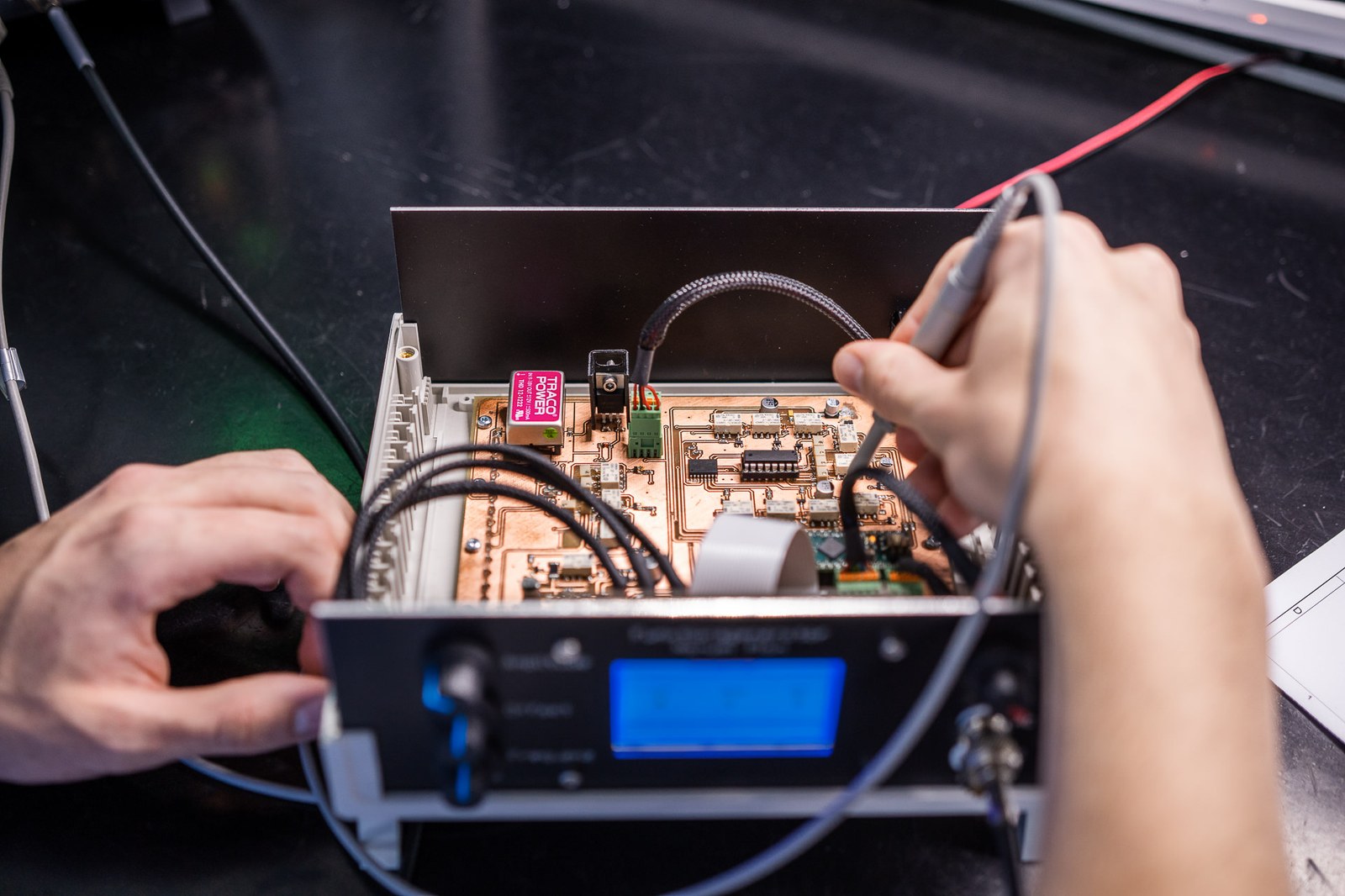
DLR/Sebastian Berger
What were your first few months at DLR like?
Manuel: My first few months at DLR were rather unusual, as it is very different from school. But the excellent working atmosphere changed that very quickly. When you start, you are given a tour of DLR, in which you are shown exactly where to find what.
At the beginning, I was taught the basic circuits of electrical engineering and reviewed the necessary maths. This was followed by topics such as control cabinet construction, electrical installation, circuit diagram/layout development and much more. These topics were reinforced by project tasks on the respective topics.
What does your typical working day involve?
Manuel: Fortunately, there is no such thing as a 'typical working day' here. There are days when you are busy with circuit diagram/layout development, circuit board production or programming µControllers, or days when you have to wire control cabinets, manufacture housings using the 3D printer or carry out fault analyses. Of course, some days are also spent in the workplace, where theoretical content is worked on or repeated.
„I was able to visualise my progress and hold it in my hands“
What has been your favourite experience of the apprenticeship so far?
Manuel: That’s a touch question, as I’ve had many wonderful moments here. But my favourite moment was when a device that I had to develop based on a written task worked straight away. I was able to visualise my progress and hold it in my hands.
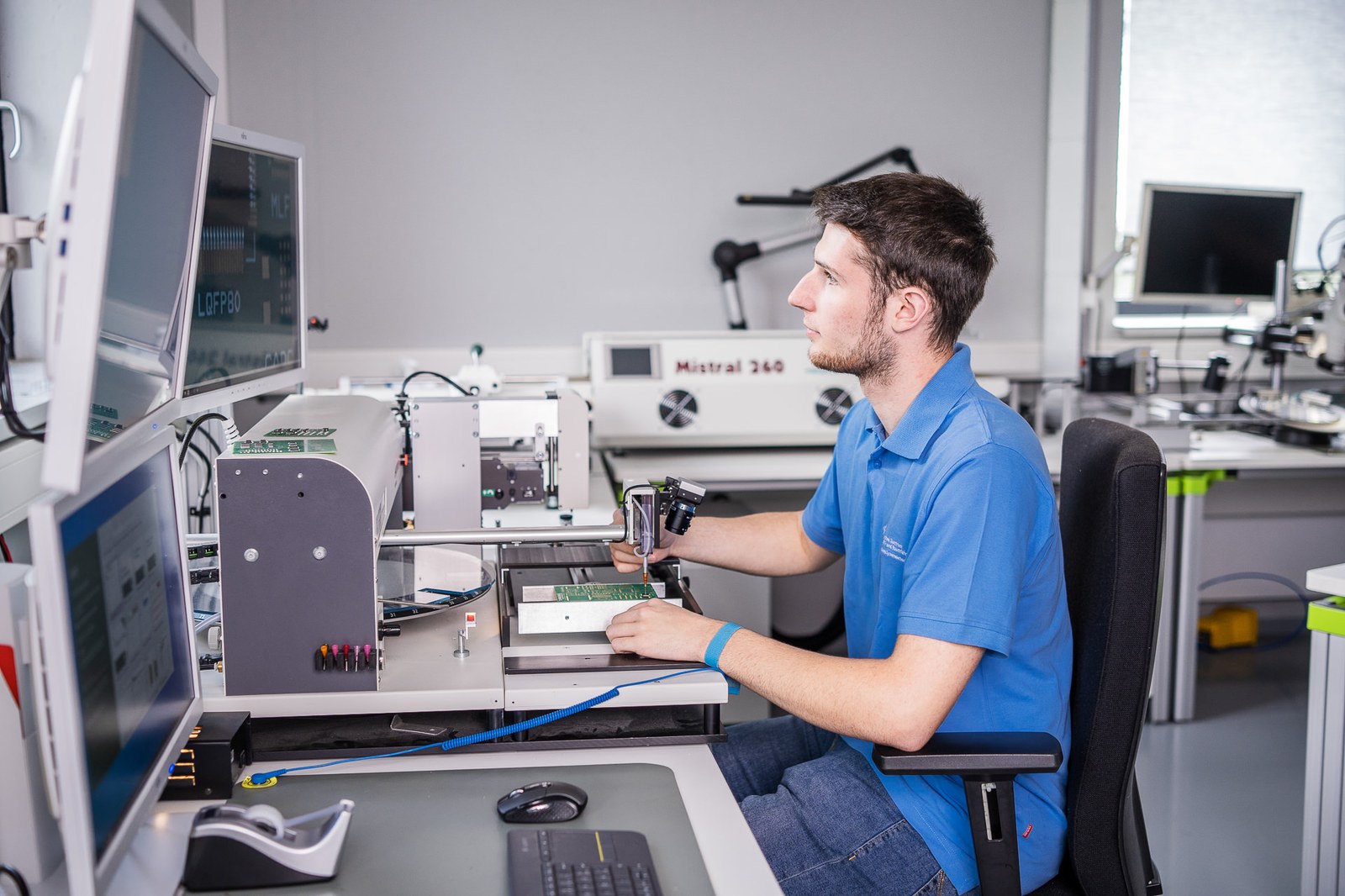
DLR/Sebastian Berger
What special skills can you make good use of in your job?
Manuel: My teamwork skills, logical thinking and curiosity help me to complete projects quickly and effectively with colleagues.
Leave us a final thought.
Manuel: The training at DLR is very varied and provides a very good basis for the future, regardless of whether you want to continue training as a technician or master craftsperson or even go on to study electrical engineering.
Collaborating with colleagues gives me the opportunity to continuously broaden my knowledge or to jointly solve problems. Above all, I like the fact that here at DLR we treat each other with respect.

